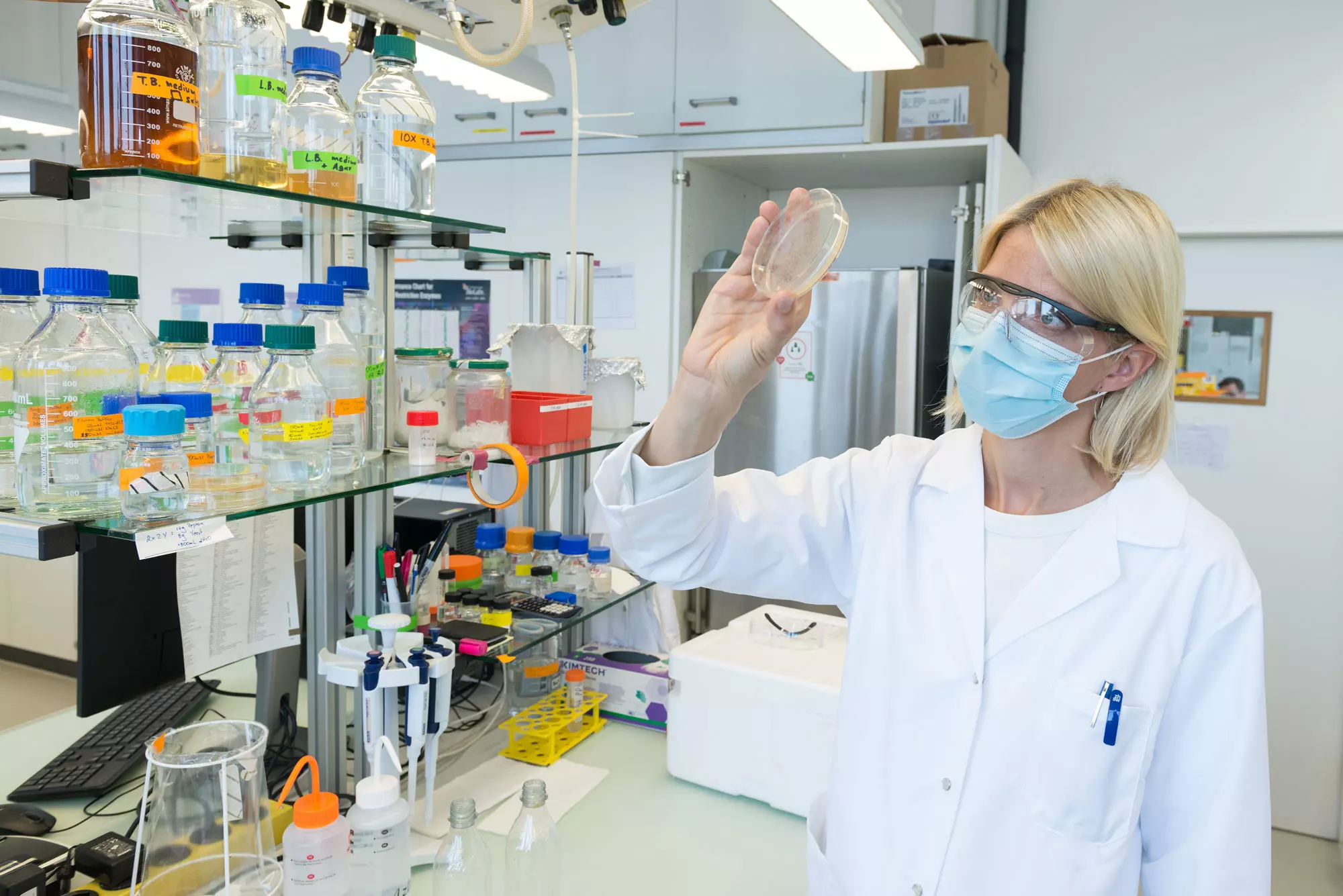ZHAW researchers train enzyme that breaks down plastic
The “PETase” enzyme can break down plastic, but it is not very productive. ZHAW researchers are optimising the enzyme by applying “directed evolution”.

Around 359 million tonnes of plastic are produced every year, of which up to 200 million tonnes end up accumulating in landfill sites or the environment. An enzyme could contribute to solving this environmental problem. In 2016, Japanese researchers discovered a protein in a soil sample taken from a PET recycling plant in Osaka that is able to break down PET, presumably nature’s reaction to the large volume of plastic waste. However, this “PETase” enzyme is not productive enough at present to make a relevant contribution to the battle against plastic. A research team headed by Rebecca Buller at the ZHAW Institute of Chemistry and Biotechnology in Wädenswil wants to change this by “training” the enzyme so it can be used in the future for the treatment of drinking water or in the biorecycling of PET waste.
Accelerating evolution in the laboratory
The ZHAW researchers are applying the process of "directed evolution", which was recognised with the Nobel Prize in Chemistry in 2018. This imitates the mechanisms of natural evolution in a laboratory setting in order to improve selected enzyme properties. Sean Hüppi from the ZHAW Institute of Chemistry and Biotechnology is already applying the process for his doctoral thesis. He explains that "by rewriting the enzyme’s blueprint, we can produce PETase variants with a different structure and then test them on PET waste".
The ZHAW is also using a special robot that can produce and measure several thousand different PETase variants per week; a person would require almost ten times as much time for this. The research group is also using algorithms that, on the basis of the data gained in the laboratory, make suggestions for optimising the structure of the enzymes. “We expect that we will once again considerably accelerate the laboratory evolution of PETase,” says Rebecca Buller, who is heading the research.